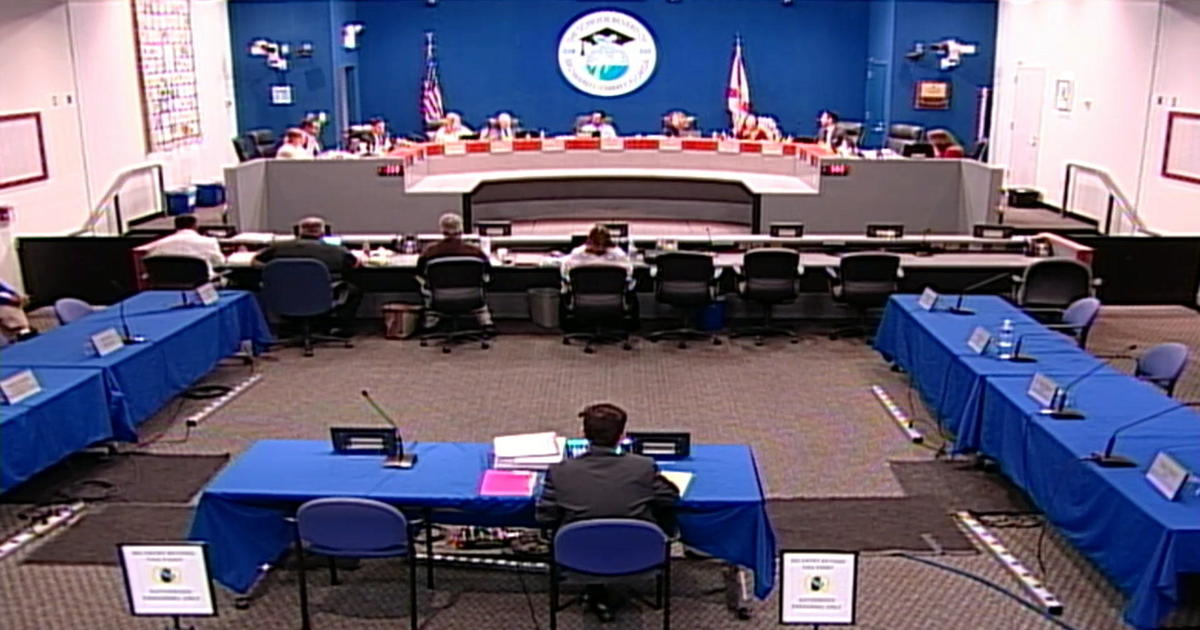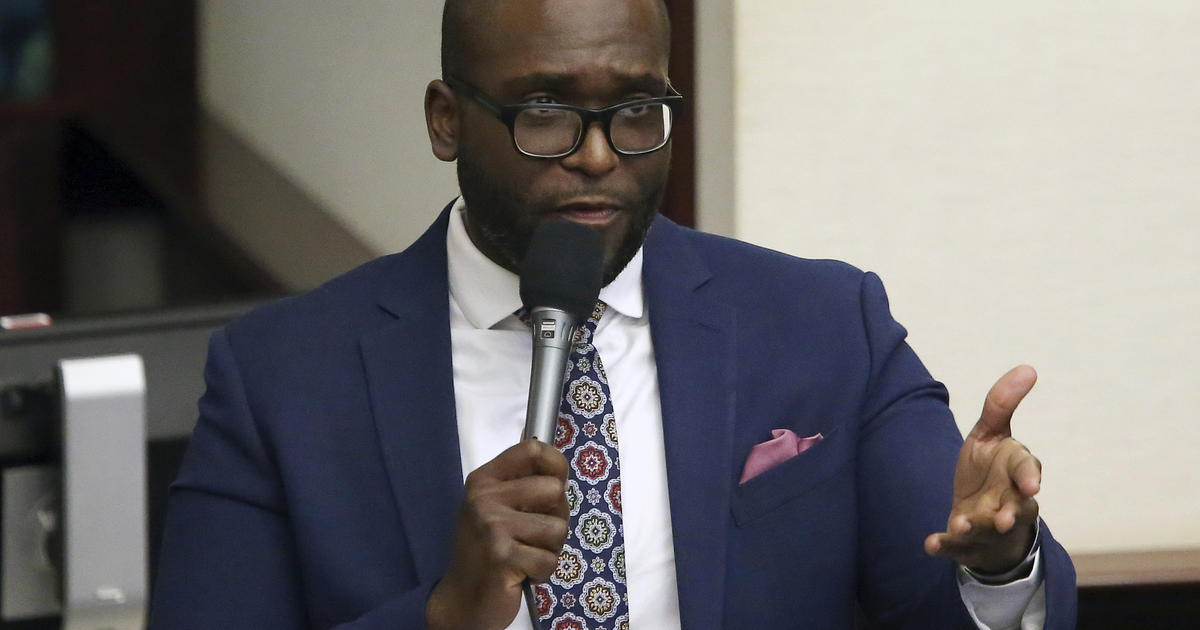Health Care Decision Has Far-Reaching Impact For Fla.
WASHINGTON (CBSMiami) – The state of Florida was turned away by the United States Supreme Court almost completely Thursday morning in the state's challenge to the Affordable Care Act.
Florida led the suit against the Health and Human Services Department and was particularly concerned with the expansion of Medicaid under the health care law. As written, the health care law would have expanded the Medicaid provision to 133 percent of the poverty line.
The ACA also said that if states turned down the new money to expand Medicaid; the states' entire Medicaid funding would be pulled.
"The threatened loss of over 10 percent of a State's overall budget is economic dragooning that leaves the States with no real option but to acquiesce in the Medicaid expansion," the Court held.
In other words the Court found, "The Medicaid expansion thus violates the Constitution by threatening States with the loss of their existing Medicaid funding if they decline to comply with the expansion."
The Court ruled that the withholding of a states' entire Medicaid funding was unconstitutional. However, Justice Ginsburg said the remedy is "to bar the withholding found impermissible, not to scrap the expansion altogether."
The Supreme Court found that states could refuse to expand the Medicaid expansion, but the money would still be available to any state willing to participate.
"When a court confronts an unconstitutional statue, its endeavor must be to conserve, not destroy, the legislation," Justice Ginsburg said.
The problem for Florida residents, and other states led by Republicans, who would have been covered under the provision is; what do they do now?
States with Republicans in charge could decide not to take part in the expansion, since no penalty is in place for it. If that's the case, then those who would have been covered under the new Medicaid expansion, will be on their own to find health insurance to avoid the tax.
- Click Here To Read What Local Politicians Have To Say About The Ruling
- Click Here To Read What CBSMiami Facebook Fans Have To Say About The Supreme Court's Decision
Republican governors, who have defied the law by refusing to put into place any parts of the Affordable Care Act, said after the Court's decision Thursday that they would continue to not put any parts in place until after the November presidential election.
Governor Rick Scott ordered the state not to accept federal money for implementing the health car after he took office last year. Florida has rejected or declined to pursue more than $106 million and has given back $4.5 million. The state has its own health care exchanges, mainly for small businesses, but doesn't have a mandate. The state hasn't put in place an exchange that would meet the requirements of the federal law.
Currently, according to the Associated Press, there are 3.85 million Floridians are uninsured. That represents roughly 21 percent of the population.
Miami resident Kendra Silvera is one of the uninsured.
"I can't afford it," she said. "You're talking $400 a month that's a car payment that's half a house payment."
She said she is self-employed and doesn't know enough about the Affordable Care Act to know exactly how it will affect her, but she says she want to be forced to buy health insurance.
"Everyone should have health insurance but I don't think it should be a corporation it shoudn't be a business," she said.
Carla Webster says the Affordable Care Act benefits her because she's 25 and it allows her to stay on her parents insurance through age 26.
"I don't have to worry where I'm going to get that support from," she said. Her Aunt, Jacqui Colyer says her employer provides good insurance but she still supports the ruling. "We're paying one way or another. People get sick, need to go to hospitals need to see doctors and somebody ought to pay."
Florida and others had challenged the law in its entirety. The Court also had to decide the fate of the individual mandate, which states that all Americans must buy health insurance or pay a tax penalty for not having coverage.
The states challenged the individual mandate, or minimum coverage provision, saying Congress overstepped its bounds under the Commerce Clause of the Constitution. The U.S. Solicitor General's office denied that and had a backup argument saying it was Constitutional under the taxing power of Congress.
The Court in a 7-2 majority found Congress didn't have the power under the Commerce Clause to implement the individual mandate. But, when it came to the solicitor general's backup argument, the Court found 5-4 that Congress does have the power under the taxing power to implement the mandate.
Once the individual mandate was upheld, the rest of the law was ruled constitutional. Specifically, the Court ruled legal: coverage provisions saying children could be kept on their parents insurance until the age of 26; health care providers can't deny people insurance because of pre-existing conditions; and insurers could not put lifetime limits on coverage.
Penny Arbulu was torn on whether she liked the health care decision. She's a breast cancer survivor and is excited about the pre-existing conditions ban.
"I will be able to do what I want with my life and not worry whether or not I'm going to have to give up my house to get my treatment," Arbulu said.
At the same time, she's concerned with the thought the health care system will change into socialized medicine.
The big picture of health insurance is very frightening," said Arbulu. "For the government to step in to something that big, that complex, that personal and say they're going to run it correctly frightens me. Look how they run the military $286 for a screw! I kind of wonder how they're going to end up doing this."
As a practical matter, if you have insurance through your employer, nothing will change; unless your company decides you can find cheaper coverage on your own rather than through the company.
If you're on Medicare, the doughnut hole in the prescription drug coverage is closed and will disappear by 2020. The provision saved seniors $2.1 billion on prescription drugs last year, according to the Huffington Post.
Additionally for those on Medicare, preventative services are available without co-pays, among other provisions.
For the uninsured, the government will help you afford the premium on health insurance through subsidies if you make up to 400 percent of the federal poverty level. Once you exceed that level, the subsidy is out. Additionally, insurers can't turn you away for pre-existing conditions.
The Supreme Court opinion issued just after 10 a.m. Thursday has sparked rapid responses from many conservatives who opposed the law in Florida and around the U.S.
"What's important to remember is that what the Court rules on is whether something is constitutional or not, not whether it's a good idea," Florida Senator Marco Rubio said. "And while the Court has said that the law is constitutional, it remains a bad idea for our economy, and I hope that in the fall we will have a majority here that will not just repeal this law, but replace it with real solutions that will insure ore people and cost a lot less money."
Florida Commissioner Adam Putnam was the first local politician to react with a statement.
"Unconstitutional or not, the so-called 'Patient Protection and Affordable Care Act' is the wrong policy for reforming health care and the wrong direction for America," said Commissioner Putnam. "Individual liberties and the doctor-patient relationship took a step back today."
Governor Rick Scott was less nuanced and said the Supreme Court enacted a tax Thursday.
"The tax question was repeatedly refuted by members of Congress who helped pass this health care takeover," Governor Scott wrote. "The Justices have declared that the provision of ObamaCare is a judicially mandated tax. A new tax pure and simple. This is just another burden the federal government has put on American families and small businesses."
Florida Attorney General Pam Bondi gave a nuanced early answer that sought to salvage some semblance of a victory after being turned away by the Supreme Court.
"The Court did say, however, that they (Congress) cannot do this under the Commerce Clause; that you cannot force a person to purchase a product just by being alive," Bondi told the News Service of Florida. "However, they found that this is a tax. And that's contrary to everything our president's been saying. So this is a tax on the American people and that's how it was upheld."
However, according to the solicitor general's argument before the Court in March, if the law wasn't valid under the Commerce Clause, which a 7-2 majority of the court said, then the law was constitutional under the taxing power of Congress.
Bondi's statement is a likely preview of the argument Republicans will make opposing the decision, without criticizing the actual justices of the Supreme Court.
The GOP talking point coming out of the decision Thursday morning was not to focus on health care, except for Mitt Romney, was to call the law a new tax. But, as with other taxes, it's easily avoidable should people follow the law.
Florida Congressman Connie Mack, IV, echoed Bondi's statement in his statement that targeted his opponent in November, Senator Bill Nelson, a democrat.
"ObamaCare not only kills jobs, burdens families and runs up our already-massive debt, it oversteps its bounds by stripping Americans of their freedoms and mandating compliance with a government edict by calling the law a tax," Mack wrote.
Congresswoman Frederica Wilson of Miami, a Democrat, lauded the Supreme Court's decision.
"This decision is a huge victory for the people of District 17 and all across the country. Because of this ruling, everyone in South Florida will benefit from critical patient protections, $1 trillion in savings over the next two decades, better coverage for families – including preventive care to keep people healthy – and greater accountability for the insurance industry," Wilson wrote in a statement.
Regardless, the Affordable Care Act is now legal and in place, for the most part, and the impacts will start to take effect in 2014.



